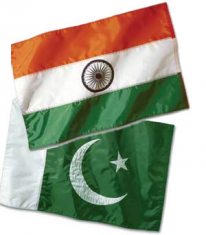A report published earlier this month says the number of cases of dengue in Karnataka has tripled during June-July, with Bangalore accounting for a majority of victims. Even residents in upper middle class neighbourhoods are succumbing, thanks to a huge garbage pile up that made news even in newspapers in the US. In the first six months of 2013 alone, Karnataka saw 3243 cases of dengue (the official figure - the real numbers are thought to be higher).
Lahore, the second largest city in Pakistan, too had over 21,290 cases of dengue in 2011. Around 350 died. As in Bangalore, the Lahore authorities too tried fogging to kill larvae, but what really helped was the innovative use of smart phones, to trace locations and clusters of incidence, and focusing on those neighbourhoods. Result: last year there were no dengue deaths. It took just 1500 mobile phones in the hands of community volunteers to also monitor implementation of various other public works projects and reduce corruption.
The fact that smartphones were recording actual implementation work on the ground helped to rein in malpractices. Random calls made to these numbers by overseers help keep track of the quality of service to the public. Given that we had (at last count) nearly 800 million mobile phones in India (for a population of 1.2 billion) has anyone thought of taking a leaf out of the Lahore experiment, and tackling dengue as well as complaints of deteriorating infrastructure? Why not? The use of mobiles also bypasses the handicap of low literacy, as Lahore has discovered.

Why do we look always to the West, assuming that they know best, ignoring simpler and more workable solutions that we could borrow from our own neighbours?
Can activists on either side learn from each other, instead of reinventing the wheel and wasting resources, including costly aid from abroad, in the process? Whether it is micro finance schemes, or employment generation projects for illiterate women, or tackling domestic violence, the matrices are the same - and so solutions could also be replicated.
How does Sri Lanka do better in terms of health indicators and literacy, and how did Bangladesh address the issue of reducing irrational formulations of drugs despite pressure from multinationals? If we can think of a BRIC bank on the lines of the Asian Development bank, why not other initiatives for learning and benefiting from the experiences of our neighbours even if they are, like us "developing" countries with scarce resources? Is the problem one of lingering colonial mindsets that sees us turning to the rich West, even for issues that are specific to our own parameters?
I am reminded of the comment that an American feminist researcher made at a recent conference on wife battering and dowry in India. "Why doesn't the woman just leave him?" she said naively, forgetting that we do not have public shelters for battered women as in the US, or social security that will help the woman survive and feed her children. Where does an Indian woman go? An Asian academic would never make such a comment. Foreigners, being alien to our socio-cultural environment, can only come up with academic-bookish solutions. A Pakistani or Bangladeshi activist, on the other hand, might understand the ramifications of gender - or poverty - issues better.
Professor Anjum Altaf, an academic in Pakistan, in his recent blogs "What plagues development in South Asia" and "Wanted, a real people's party" (at http://thesouthasianidea.wordpress.com/) points out how Amartya Sen's description of India as "pockets of California existing amidst a sea of sub-Saharan Africa" applies equally to our neighbour across the border to the west (and also to cities like Bangalore) - incremental incomes and better facilities go to the affluent, rather than to the deprived sections, even if GDP rises.
In terms of social indicators, if Pakistan and India are at the bottom of the table for South Asia (with even Bangladesh and Sri Lanka doing better, despite handicaps in terms of social unrest and/or insufficient resources), it is not merely because of lack of democracy in Pakistan. India is a democracy but is equally stunted due to poor performance in distributive justice and poverty eradication. Could both countries learn from each other's experiences? We share not just borders, but also many identical problems.
At an international conference in Islamabad, a research study presented by a Pakistani academic about gender issues in the northern regions of Pakistan came up with comments that could have applied equally, word for word, to rural women in the northern regions of India too. The socio-cultural handicaps are, after all, similar. True, we have had problems with Pakistan, even recently along the line of control, as also six decades of political hostility. But why should that stop us from emulating success stories or copying strategies that have worked on the other side of the political fence?
People-to-people, the sentiments are extremely friendly, as I found during my three visits. On the day we became independent, in August 1947, I was a tiny tot in Delhi, but can remember being dressed, doll-like, in a white mini-sari with a tricolour border, and eating sweets that my father bought from the Bengali Market. My favourite was Karachi halwa, with its jewel-tinted red and green and golden yellow slabs, so I asked, nostalgically, for Karachi halwa when I went shopping recently in Karachi. The shopkeeper gave me a broad smile and said, "Apa (sister) my shop specialises in Delhi halwa, it is our speciality, why don't I give you some of that?" And he wouldn't take money for it either - his grandfather grew up near where we had lived in Delhi.
It's time we separated politics from socio-economic concerns, and got on with what needs to be done for tackling our problems, whether it is dengue or illiteracy
or gender discrimination. Solutions, wherever they are from, carry no caste, religious or political tags.

